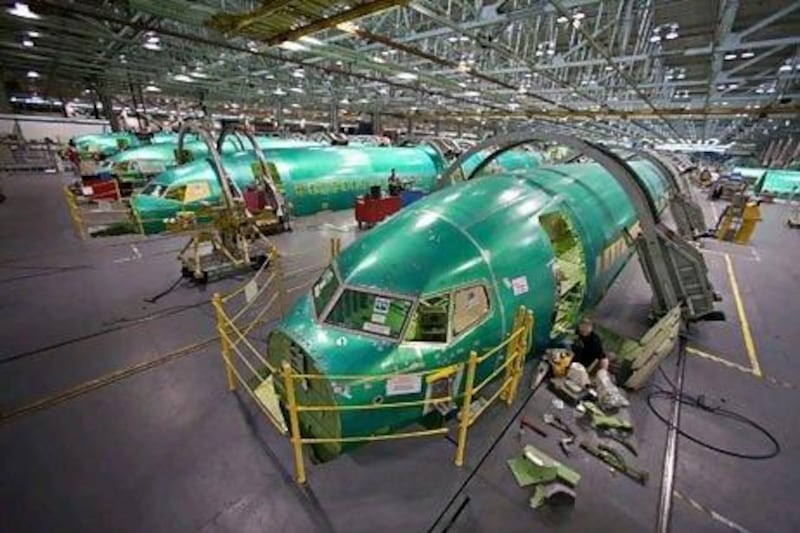Iraq's national carrier is planning to re-emerge as a major regional airline, with the first of 40 Boeing aircraft set to be delivered next year.
"We want to expand our fleet and operate routes to Europe, Malaysia and India. We want to operate just like any other regional airline," said Nasser Hussein Bandar, the head of Iraq's civil aviation authority.
Iraqi Airways, founded in 1945, is among the oldest airlines in the region but has no planes of its own after it liquidated its assets and attempted to dissolve the entity to avoid paying hundreds of millions of dollars of debt owed to Kuwait.
The war-torn country in March reached a US$500 million (Dh1.83bn) debt deal to resolve the two-decades long dispute with Kuwait, paving the way for the airline to return to normal business.
Iraq's current commercial fleet consists of 13 planes leased through regional brokers and six Bombardier CRJ-900 aircraft. These are owned by the Iraqi ministry of finance and leased back to the airline to prevent Kuwait seizing them.
Iraq also has options to buy four additional aircraft from Bombardier, which have not been exercised so far due to the legal claims by Kuwait. No decision will be made imminently over whether to exercise the options or to choose Boeing or Airbus aircraft instead. The ministry of finance has allocated $300m in its national budget for the purchase of aircraft.
"The government is still considering whether to make the purchase for the pending four planes, or opt for other models from Boeing or Airbus," Mr Bandar said.
According to Boeing, Iraq ordered 30 737-800s (with 10 options) and 10 787-8s (with five options) in April 2008 and December 2009, respectively. However, Boeing policy is not to disclose delivery dates, although Mr Bandar said deliveries were scheduled to run from next year through 2016.
"During the past several years The Boeing Company has developed a strong partnership with the Iraqi government concerning the country's current and future commercial aviation needs," said Marty Bentrott, the vice president of sales for Boeing commercial airplanes, for the Middle East, Russia and central Asia.
"Areas of common interest include but are not limited to replenishing Iraq's commercial aviation fleet and modernising the country's commercial aviation infrastructure," he said.
Throughout this time the US government has demonstrated strong support for this deepening partnership and we appreciate their continuing efforts.
"We look forward to working with the Iraqi government and the Iraqi private sector as they modernise their commercial aviation sector and integrate fully into the international commercial aviation system."
Saj Ahmad, the chief analyst at the consultancy StrategicAero Research based in the United Kingdom, said the fleet expansion must be accompanied by a recruitment drive.
"On the expansion front, the key really is investment in staffing and resources, without which they can't launch flights overseas and its not clear how the Iraqi government aims to plug this gap," he said.
But Mr Bandar was adamant the expansion would go ahead. "Iraqi Airways has the experience, we have the know-how and with more than 3,600 staff that include pilots, cabin crew, schedulers, operators and marketers," Mr Bandar said. "But without planes, we haven't been able to properly fly, plan new routes, or make schedules."
twitter: Follow and share our breaking business news. Follow us
iPad users can follow our twitterfeed via Flipboard - just search for Ind_Insights on the app.





